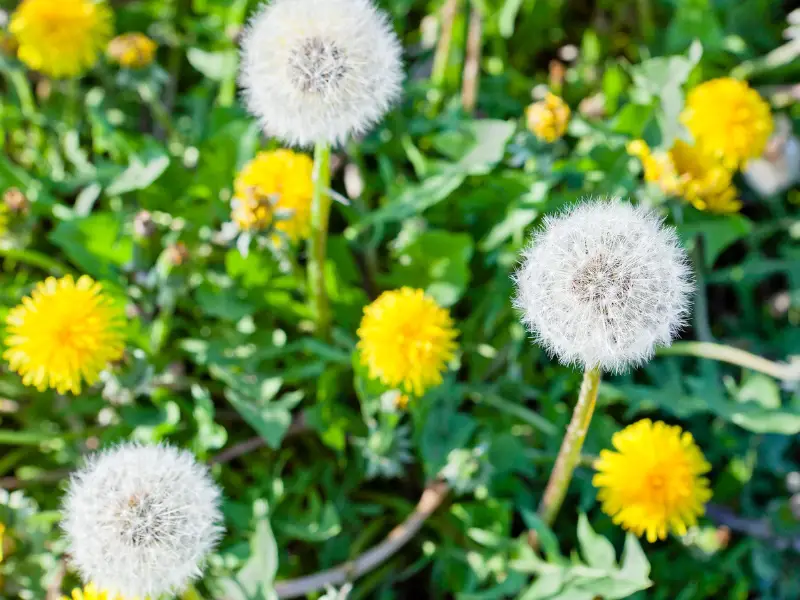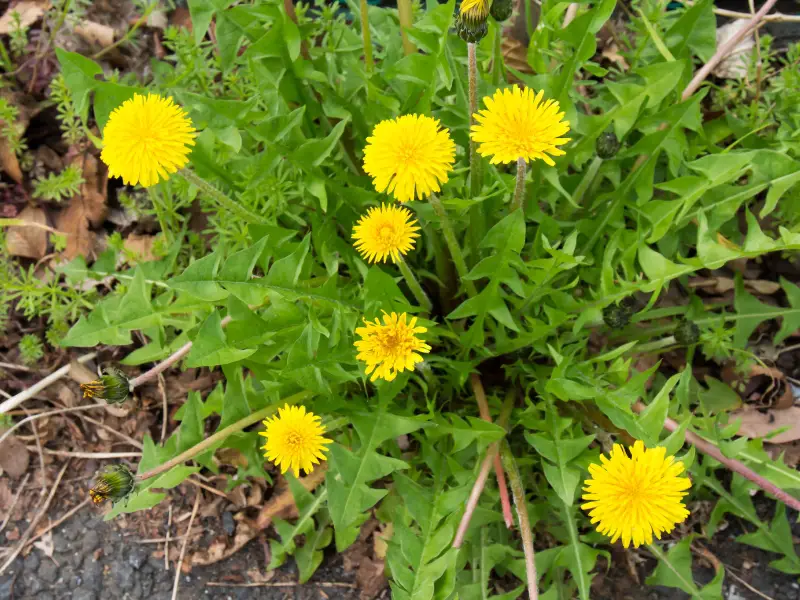Rabbits are herbivores and require a diet rich in fiber to maintain their digestive health. While hay and fresh vegetables are staples in their diet, many rabbit owners wonder if dandelions are a safe and nutritious addition. Dandelions are a common weed found in many yards and gardens, making them a convenient and free food source for rabbits.
However, before feeding dandelions to rabbits, it’s important to know if they are safe to consume. While dandelions are not toxic to rabbits, it’s important to ensure that they are free of pesticides and herbicides. Additionally, dandelions should be fed in moderation as they are high in calcium and oxalates, which can lead to bladder stones and other health issues if consumed in excess.
In this article, we will explore whether rabbits can eat dandelions and the benefits and risks associated with this popular weed. We will also provide tips on how to safely incorporate dandelions into your rabbit’s diet and what to avoid to ensure your furry friend stays healthy and happy.
Can I feed my rabbit dandelions?
Rabbits are herbivores, and they love to munch on a variety of greens. Dandelions are one of the many greens that rabbits can eat. These plants are easy to find, and they grow in most lawns, gardens, and parks. But can rabbits eat dandelions?
The answer is yes, rabbits can eat dandelions. In fact, dandelions are a great source of nutrition for rabbits. They are low in calories, high in fiber, and contain essential vitamins and minerals that rabbits need to stay healthy. Dandelions are also rich in antioxidants, which can help prevent cell damage and reduce the risk of disease.
However, it’s important to note that not all parts of the dandelion plant are safe for rabbits to eat. The leaves and flowers are safe, but the stems and roots are not. The stem and roots contain a milky sap that can cause digestive upset and diarrhea in rabbits. So, when feeding your rabbit dandelions, make sure to only give them the leaves and flowers.
It’s also important to wash the dandelions thoroughly before feeding them to your rabbit. Dandelions that grow in public areas may have been exposed to pesticides or other chemicals, which can be harmful to your rabbit. So, make sure to wash the dandelions in cold water and remove any dirt or debris before feeding them to your rabbit.
In conclusion, dandelions are a safe and nutritious treat for rabbits, as long as you only give them the leaves and flowers and wash them thoroughly before feeding. Rabbits love to munch on dandelions, and it’s a great way to provide them with a variety of greens in their diet.
Benefits of Feeding Dandelions to Rabbits

Dandelions are a common weed found in many gardens and fields. However, they are not just a nuisance, but also a nutritious food source for rabbits. Here are some benefits of feeding dandelions to rabbits:
High Nutritional Value
Dandelions are packed with essential nutrients that are beneficial for rabbits. They are rich in vitamins A, C, and K, as well as minerals such as calcium, iron, and potassium. Rabbits need these nutrients for healthy growth and development, as well as to maintain their overall health.
Promotes Digestive Health
Dandelions are a good source of fiber, which is essential for maintaining digestive health in rabbits. A diet high in fiber can prevent digestive problems such as diarrhea and constipation. Additionally, dandelions contain inulin, a prebiotic that promotes the growth of beneficial bacteria in the gut.
Supports Immune System
Dandelions contain antioxidants, which help to protect the body against damage from free radicals. These antioxidants can help to boost the immune system and protect rabbits from diseases and infections.
Low in Calories
Dandelions are low in calories, which makes them a great treat for rabbits who need to maintain a healthy weight. They are also low in sugar, which is important for preventing dental problems in rabbits.
Overall, feeding dandelions to rabbits can provide many health benefits. However, it is important to feed them in moderation and as part of a balanced diet. Rabbits should also have access to fresh water at all times.
Risks of Feeding Too Many Dandelions to Rabbits
Feeding dandelions to rabbits can be a healthy and tasty treat in moderation. However, feeding too many dandelions to rabbits can cause some health risks. Here are some risks to consider:
Digestive Issues
Rabbits have a sensitive digestive system, and feeding them too many dandelions can cause digestive issues. Dandelions contain high levels of fiber, which can be difficult for rabbits to digest in large quantities. This can lead to bloating, gas, and even diarrhea.
Calcium Imbalance
Dandelions are high in calcium, which is important for rabbits’ bone health. However, too much calcium can cause a calcium imbalance in rabbits, leading to bladder stones or sludge. This can be painful and may require veterinary treatment.
Pesticide Exposure
Dandelions growing in the wild may have been exposed to pesticides or other chemicals, which can be harmful to rabbits. It is important to only feed rabbits dandelions that have not been treated with chemicals.
Obesity
Feeding rabbits too many dandelions can also lead to obesity. Dandelions are high in calories and carbohydrates, which can cause rabbits to gain weight if they are overfed.
In conclusion, while dandelions can be a healthy treat for rabbits, it is important to feed them in moderation. Too many dandelions can cause digestive issues, calcium imbalances, pesticide exposure, and obesity.
How many dandelions can I give my rabbit?
Dandelions are a common plant found in many gardens and parks. They are also a popular treat for rabbits. However, it is important to know how many dandelions you can give your rabbit to avoid any health issues.
Rabbits can eat dandelions in moderation. A small amount of dandelions can be given to your rabbit as a treat. It is recommended to give your rabbit no more than 1-2 dandelions per day.
It’s important to note that dandelions should never replace your rabbit’s regular diet of hay, fresh vegetables, and water. Dandelions should only be given as a supplement to their regular diet.
Too many dandelions can cause digestive issues in rabbits. Overfeeding dandelions can lead to diarrhea, bloating, or other digestive problems. It’s also important to make sure the dandelions are free of pesticides and other harmful chemicals.
In summary, dandelions can be a healthy and tasty treat for your rabbit when given in moderation. It’s recommended to give your rabbit no more than 1-2 dandelions per day and to make sure they are free of harmful chemicals.
Can Baby Rabbits Eat Dandelions?
Dandelions are a common weed that can be found in many gardens and fields. They are also a popular food for rabbits, but can baby rabbits eat dandelions?
The answer is yes, baby rabbits can eat dandelions. In fact, dandelions are a great source of nutrition for rabbits of all ages. They are high in fiber, vitamins, and minerals, and are low in calories.
However, it is important to introduce dandelions slowly and in small amounts to baby rabbits. Their digestive systems are still developing, and sudden changes in their diet can cause digestive upset. It is recommended to wait until baby rabbits are at least 12 weeks old before introducing them to dandelions.
When feeding dandelions to baby rabbits, it is important to wash them thoroughly to remove any dirt or pesticides. It is also recommended to only feed them the leaves and flowers, and not the stem or roots, as they can be tough to digest.
Overall, dandelions can be a healthy and tasty addition to a baby rabbit’s diet when introduced in moderation and at the appropriate age.
| Pros | Cons |
|---|---|
| High in fiber, vitamins, and minerals | Sudden changes in diet can cause digestive upset |
| Low in calories | Stems and roots can be tough to digest |
| Tasty and nutritious | Should be introduced slowly and in small amounts |
Related Articles:


